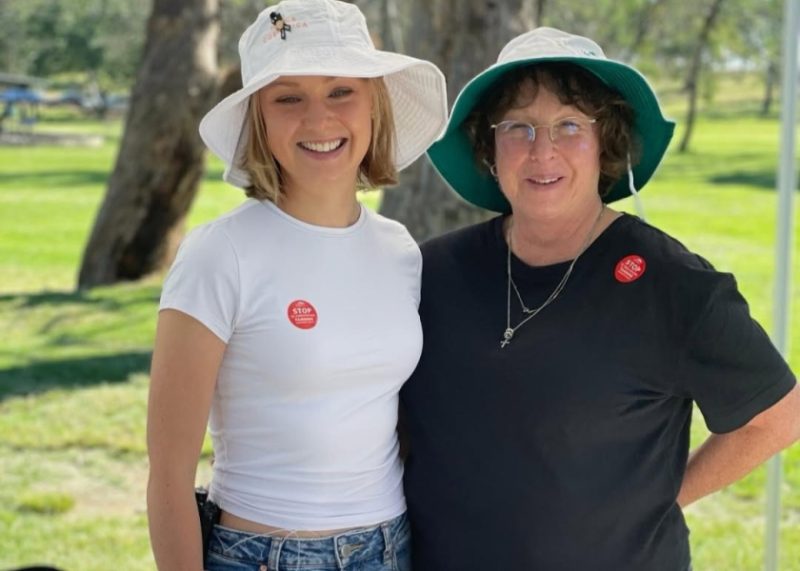Australia’s skin cancer burden – a scorecard shows where we are failing

Posted on
Australia has a national cancer, the result of our sunburnt country.
Skin cancer is the most common cancer in Australia, claiming more than 2,000 lives every year and costing the health system $2.47 billion.
Yet most skin cancers are preventable.
Disturbingly, new survey data has revealed one in four Australians have never checked their own skin and six in 10 delay getting suspicious spots checked, exposing a dangerous national complacency.
The Melanoma and Skin Cancer Advocacy Network (MSCAN) in partnership with the Australasian College of Dermatologists has created the country’s first ever National Skin Cancer Scorecard. This identifies critical gaps in the fight against our national cancer and calls for greater focus on overlooked and rarer skin cancers, younger people and regional Australians.
The scorecard presents a comprehensive view of our progress toward reducing the burden of skin cancer, including melanoma, for all Australians and uses measurable, repeatable indicators to track progress.
While melanoma is a well-understood skin cancer, keratinocyte (or non-melanoma) cancers kill more than 700 Australians every year and incidence rates are rising. Yet nearly one in three Australians don’t believe they can be fatal and eight in 10 don’t know what they are. The scorecard calls for immediate action on keratinocyte skin cancers, which can lead to life-changing disfigurement and are the most expensive cancers to treat – costing the health system $1.87 billion each year.
Delivering the scorecard to politicians in Parliament House this week, MSCAN Founder and CEO Tamara Dawson said the scorecard provided a critical opportunity to unite the sector’s efforts and improve outcomes for the hundreds of thousands of Australians diagnosed with melanoma and skin cancer every year.
“We are immensely proud to lead this work, and are calling on governments, clinicians, researchers, industry and communities to work together and address the gaps the Scorecard has highlighted to reduce the burden of skin cancer and save lives,” she said.
“MSCAN and ACD have developed the scorecard to keep melanoma and skin cancer firmly on the national agenda, and prompt conversations at the national, state, community and household levels.”
While Australia has made progress in a number of key areas, there has been minimal progress against six of the 16 items.
These are: improved sun protection in secondary schools, provision of shade in high-risk public areas, better sun protection for outdoor sports, equitable access to multidisciplinary care, equitable access to psychosocial support and care, and strengthened funding and regulation of virtual care models and digital technologies to support optimal and safe care.
Two priority groups were identified: under-30s, for whom melanoma is the most commonly-diagnosed cancer, and regional and rural Australians, who face higher skin cancer rates and poorer outcomes.
The scorecard also highlights where further data is needed, particularly tracking the quality of life for people experiencing skin cancer, and understanding the true burden of keratinocyte cancers.
ACD President Dr Adrian Lim said “The National Skin Cancer Scorecard gives us a clear framework to focus effort where it will most improve access, early detection and specialist care, so every Australian community benefits.”
“As dermatologists, we see firsthand the impact these gaps have on patients and their families, and we are committed to ensuring that all Australians have access to life-saving skin cancer prevention, early detection, treatment and care.”
Around six in ten Australians (58 per cent) delay speaking to their GP when they notice a suspicious spot, and many don’t know how to check their own skin.
One in four (25 per cent) have never checked their own skin for signs of skin cancer. When asked how confident they felt checking their own skin, almost half (48 per cent) were either unsure (29 per cent) or not at all confident (19 per cent), and only 10 per cent were very confident.

Bernadette Cross with her daughter Erin Cross (and HerCanberra’s Online Editor)
For Bernadette Cross, who is a member of MSCAN’s community action team, the scorecard is an important roadmap which may help others avoid the same journey she has been on. Diagnosed with multiple melanomas as well as both basal cell and squamas cell carcinomas, Bernadette has almost lost count of the number of operations she has had to remove parts of her skin, and has also been forced to hear the words from her doctors to “get your affairs in order”.
Yet she said the scorecard gave her hope – “most of this suffering is preventable. We know what works. We just need to do it.”
She said policy makers needed to focus on prevention, early detection, treatment and support.
“We need consistent, well-funded campaigns that make sun safety as automatic as putting on a seatbelt. We need every school in Australia teaching sun-protective practices—not as an afterthought, but as part of looking after our kids. We need shade in public areas, at sports grounds, at beaches. We need our sporting codes, from grassroots to elite level, leading by example.
“I wish I’d known in my teens what I know now. I wish someone had made it clear just how dangerous our beautiful Australian sun can be. Let’s make sure the next generation doesn’t have to learn the hard way.”
Bernadette said detection had saved her life—multiple times.
“We need a National Targeted Skin Cancer Screening Program that reaches every Australian, no matter where you live. If you’re in Cairns or Ceduna, in Darwin or Devonport, you deserve the same access to skin checks and specialist care.”
“We need to strengthen Telehealth services so that expertise can reach remote communities. Technology can bridge the distance—we just need the funding and the commitment to make it happen.”
And finally, she called for better coordinated care for those diagnosed.
“Every person diagnosed with skin cancer deserves access to a team of specialists working together – dermatologists, surgeons, oncologists, nurses, all coordinated around your care. I’ve received care, and I’ve seen the gaps.”
The next Scorecard will be published in 2030.
MSCAN provides expert resources to support all Australians to get to know their own skin, including a step-by-step guide and video.
Main image by Mikhail Nilov via Pexels.

